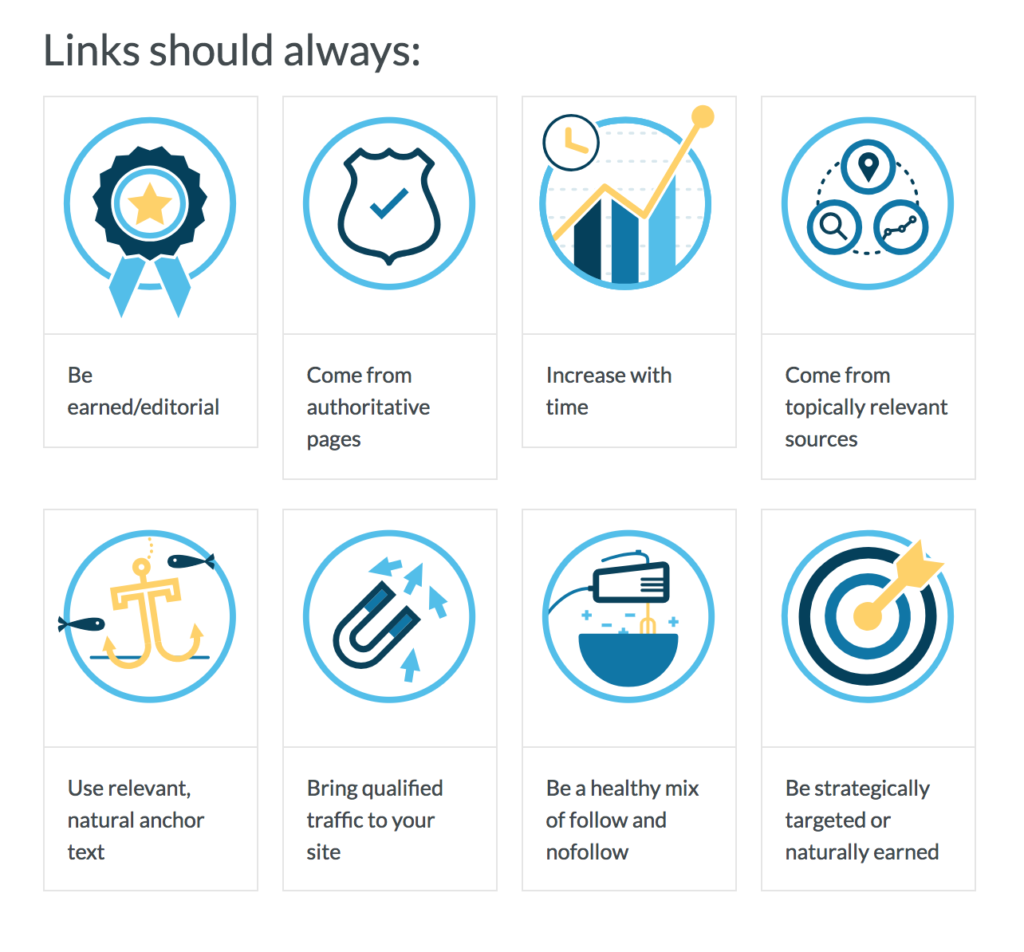Before the launch of Google Penguin in 2012, websites were violating Google webmaster guidelines with black hat SEO tactics. Many people were paying for links to boost their website rankings. As part of Google’s algorithm, Penguin seeks to catch those websites engaged in link scheming. In order to organically build your website rankings, definitely seek the professional route and also avoid the following “black hat” techniques.

Don’t trade or exchange links.
Link trading started as a good strategy for websites but quickly became abused. SEOs began trading links with anyone they could, and the quality of the websites were compromised in return. Some websites even dedicated a page specifically to link trading. The links listed were often irrelevant and of low quality. Google will penalize for excessive link exchange and even has a page listed in their guidelines. Legitimate and natural link building is the best way to go.
Don’t pay for links.
Buying links in bulk is sure to be noticed by Google, and you can face a penalty. Even purchasing a single link from a company is not smart. While you are only buying one, the company you are purchasing from may be selling many others. Don’t throw away hard earned money for something that can be done authentically. Paying for links refers to the exchange of money for links, as well as exchanging goods or services. Even offering someone a free product in exchange for a link can be considered paying for links, and your site could be at risk for a penalty.
Don’t insert links in blog comments.
Useful links work. A bunch of links in the comment section are just plain spammy. If you want to post a link, be sure it’s relevant and use your name to add credibility.
Don’t guest blog on just any website.
Guest blogging is great if done correctly. Be sure to do your research and collaborate with those who relate to your mission. Be aware of spammers who send out automated messages in an attempt to guest blog on your site as well. Build authentic relationships before reaching out to guest post. Take a look at traffic levels and be sure the engagement will be worth your time.
Don’t rely on press releases.
Google caught on to mass press releases being used by internet marketers for link building. Now, Google algorithms stop you from receiving much (if any) SEO value to your website. This isn’t to say you don’t want to pass on newsworthy items, just be sure not to abuse this method.
Don’t get too many links at once.
Slow and steady wins the race, right? Focus on quality or quantity. Acquiring many links over a short period of time might trigger Google to think you are spamming. This will result in a penalty and will take you even more time to build up your rankings. Growing your business takes time. Direct your attention to content marketing, a strong website, social media marketing, etc. These tactics will produce organic growth and long-term results.
Don’t overdo the social media links.
Connecting on social media is a great way to build your brand and increase awareness. However, if you are just throwing up links on a profile that you have yet to create a relationship with, you aren’t going to reap the benefits.
Don’t use article submission spam.
Previously, submitting articles to websites such as Ezine Articles was a way to improve your webpage ranking. Low quality articles devalued these sites and Google does not approve.

There you have it. White hat, Google-approved link building strategies are the way to go. Create an SEO strategy that focuses on good link and relationship building techniques. In the end, the best way to gain links is by creating engaging, valuable, and relatable content that people will WANT to share and link to. Click here for more information on link schemes that will get your site penalized by Google, and stay on their good side by always choosing white-hat strategies! And when in doubt, turn to Marketing Cartel for help.
feature image credit: optinmonster.com
image 1: moz.com







